A new series where we ask our instructors about their early lives, career development and proudest accomplishments. Our third interview features Dr. Bruce Fulton, Associate Professor in Korean literature and literary translation.
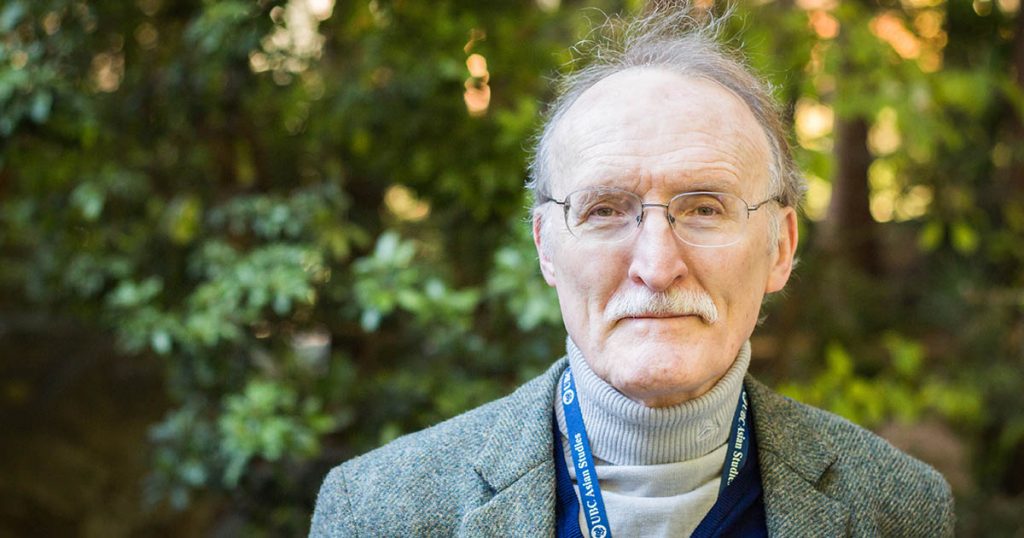

Quick Facts
- Dr. Bruce Fulton has been teaching at UBC since 1999
- Published in The Future of Silence: Fiction by Korean Women (Zephyr Press, 2016), trans. with Ju-Chan Fulton: nine stories ranging from the 1970s to the new millennium and Moss, a webtoon/netcomic by Yoon Taeho, trans. with Ju-Chan Fulton; currently being serialized at The Huffington Post.
- Teaching ASIA 347; ASIA 447; KORN 410A; KORN 440A; ASIA 357; KORN 410B; KORN 440B
Can you explain to a non-expert what you research?
My job description covers both Korean literature and literary translation. As for Korean literature, I’m increasingly interested in the Korean literary tradition as a whole—the oral tradition and recorded literature, writing in classical Chinese as well as writing in Korean, traditional as well as modern literature—and the rich intertextuality and intermediality it displays. For example, my students can appreciate the classic tale of Ch’unhyang in prose form, in a film by one of contemporary Korea’s most accomplished filmmakers, and even in a K-Pop song in which the singer wears period clothing.
I’m also interested in the way the Korean literature power structure (mundan) works, often in my opinion to the detriment of engaging a wide audience for Korean literature both in Korea and abroad. I’m interested in varieties of modern Korean literature that exist on the peripheries of this power structure, such as military camptown fiction; genre fiction; flash fiction and its slightly longer counterpart, the conte; and the literature of the Korean diaspora.
As for literary translation, I’m more active in the actual translation process than in researching and theorizing about it. I want my students to first have practical experience in Korean-to-English literature translation; students who are interested in the field of translation studies can then apply this experience in their research.
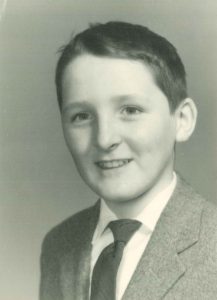

A young Dr. Bruce Fulton. Age 11, 5th grade, Syracuse, N.Y. (1959).
How and why did you start your journey in Asian Studies?
In 1978, when I first went to Korea (as a member of the U.S. Peace Corps). That I ended up in Korea was fortuitous (I was first asked if I wanted to go to Afghanistan!), but I had a distinct reason in wanting to go overseas, and that was to broaden my horizons.
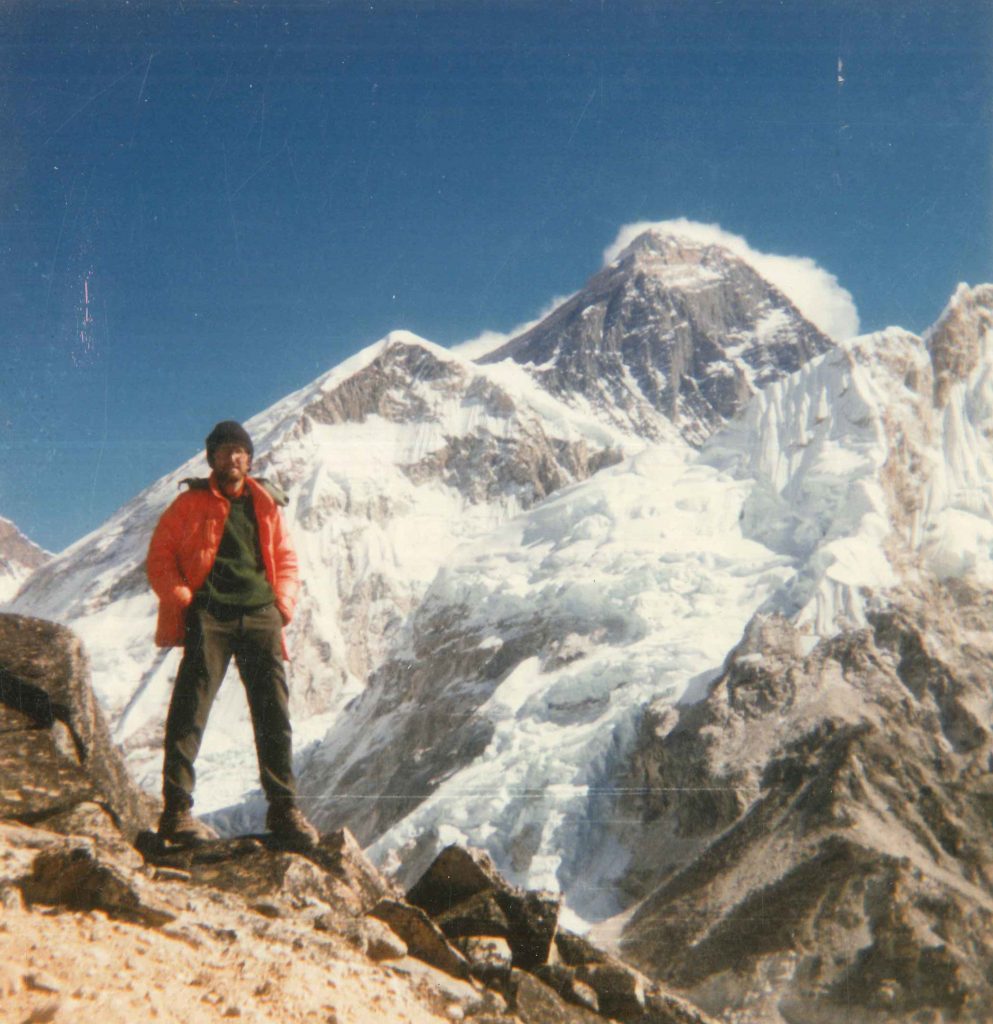

Dr. Bruce Fulton. January 1980 (on trek with Ju-Chan Fulton in Nepal), near summit of Kala Patar (c. 18,000 feet), above Everest Base Camp, with the summit of Mt. Everest in the background
What was the experience for you learning a second language?
I’ve had three different such experiences. I studied French from junior high school into college, but did so because the courses were required; I was not a committed French language learner. My study of Korean began the moment my Peace Corps group landed in Korea and it has continued ever since, in a variety of settings. One of my Korean teachers in Peace Corps remarked that the most fruitful language learning takes place when the learner desires to communicate with those who are native speakers of the target language; that has been my experience with Korean. Third, I undertook the study of Mandarin in graduate school to improve my understanding of the considerable proportion of the Korean language (slightly more than 50 percent) that consists of loan words from Chinese. But I ultimately began to enjoy studying Mandarin as a spoken language separate from spoken Korean.
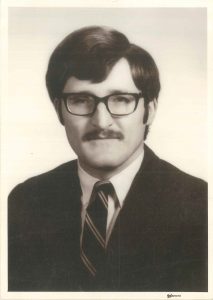

Age 21, senior year at Bowdoin College, Brunswick, Maine, Alpha Delta Phi Fraternity photo.
Was there a point in your journey you struggled or questioned yourself? What happened?
Not until very recently, when I began to realize that human relations are no longer as important in Korea, at least in the metropolis of Seoul, as they once were. In recent years there has been an increasing emphasis in Korean public life on rules and regulations, an emphasis that has had the unfortunate effect of supplanting what I early on came to regard as the solidity of a personal relationship, in which the two parties would usually be able to overcome any obstacle or misunderstanding. I’ve recently encountered several problems related to the increasing institutionalization and commercialization of the translation of Korean literature into English.
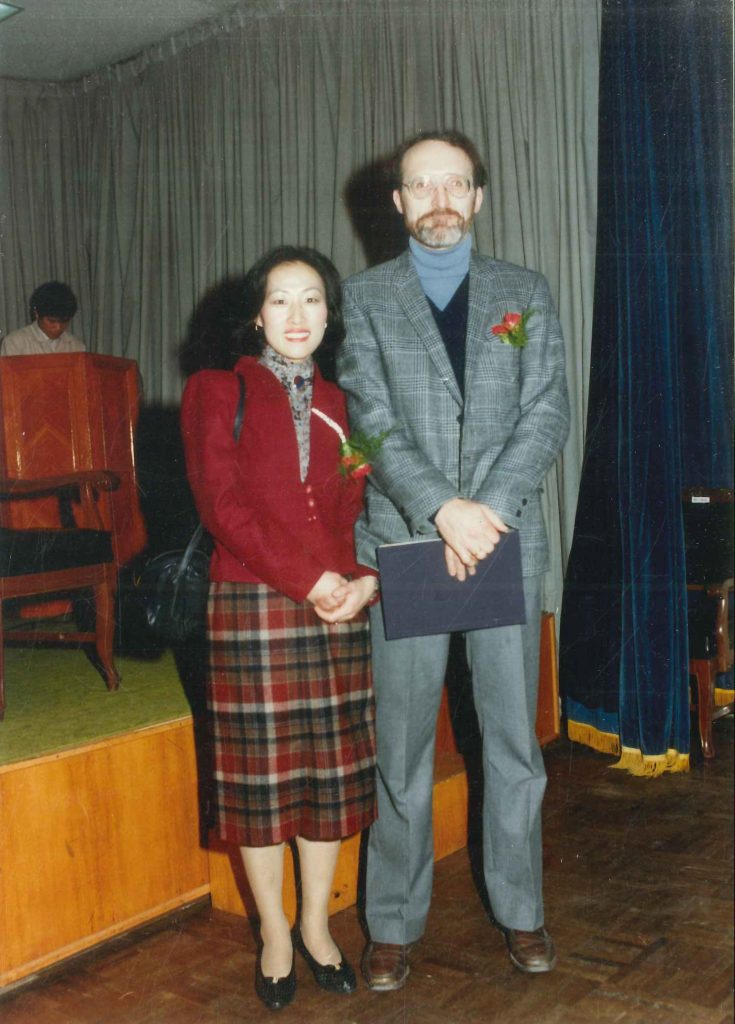

Dr. Bruce Fulton. 1985 (with Ju-Chan Fulton). Award ceremony for Korean Literature Translation Prize (awarded by the Korean Culture and Arts Foundation, Seoul, for THE MOVING CASTLE, a novel by Hwang Sunwon).
Is there a project that you are most proud of?
Not a single project but several, including:
- The more than 100 published translations by students of mine at UBC
- The publication of three collections of contemporary Korean women’s fiction, translated by Ju-Chan Fulton and myself
- The publication of THE DWARF, translated by Ju-Chan Fulton and myself (U of Hawai’i Press), in my view the most important one-volume Korean novel published since 1945
- The Korean author reading tours of UBC and other venues in North America that I organized from 1999 to 2013 with the support of the International Communication Foundation, Seoul (the foundation that endowed the professorial position I hold in our department)
- The serialization of MOSS, translated by Ju-Chan Fulton and myself, in THE HUFFINGTON POST, to my knowledge the first authorized English translation of a Korean graphic novel
- My creation of three seminar courses—ASIA 447 (Korean Women’s Literature), ASIA 452 (Literature of the Korean Diaspora), ASIA 457 (The Modern Korean Novel)—and my proposal for a fourth seminar course, ASIA 427 (Topics in Korean Popular Culture—Hallyu).
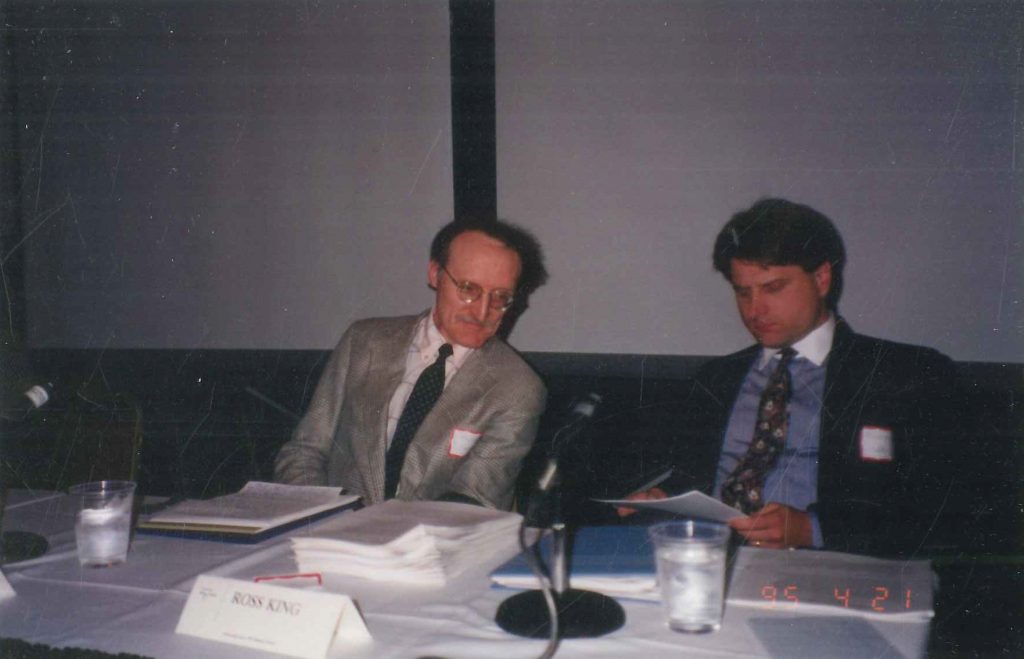

Dr. Bruce Fulton with a young Dr. Ross King. 1995.
In class we study about events that shape Asia. Have you witnessed any such event firsthand?
Yes, in February 1997, when I returned to Seoul after winter break to continue my doctoral program at Seoul National University, I witnessed a very unusual gathering on the school playfield where I took my morning jog. It was still dark and difficult to tell at first who was involved and what was going on, but I eventually realized that the silent masses of huddled men whom I saw there had lost their jobs due to the IMF crisis—which struck Korea particularly hard—and were gathered to hear an inspirational talk. I later witnessed a food line along the avenue nearby, presumably serving this sizable, newly unemployed segment of the population of Seoul. This event reminded me anew of the many ways in which my country, the U.S., has had a profound impact on contemporary Korean history.
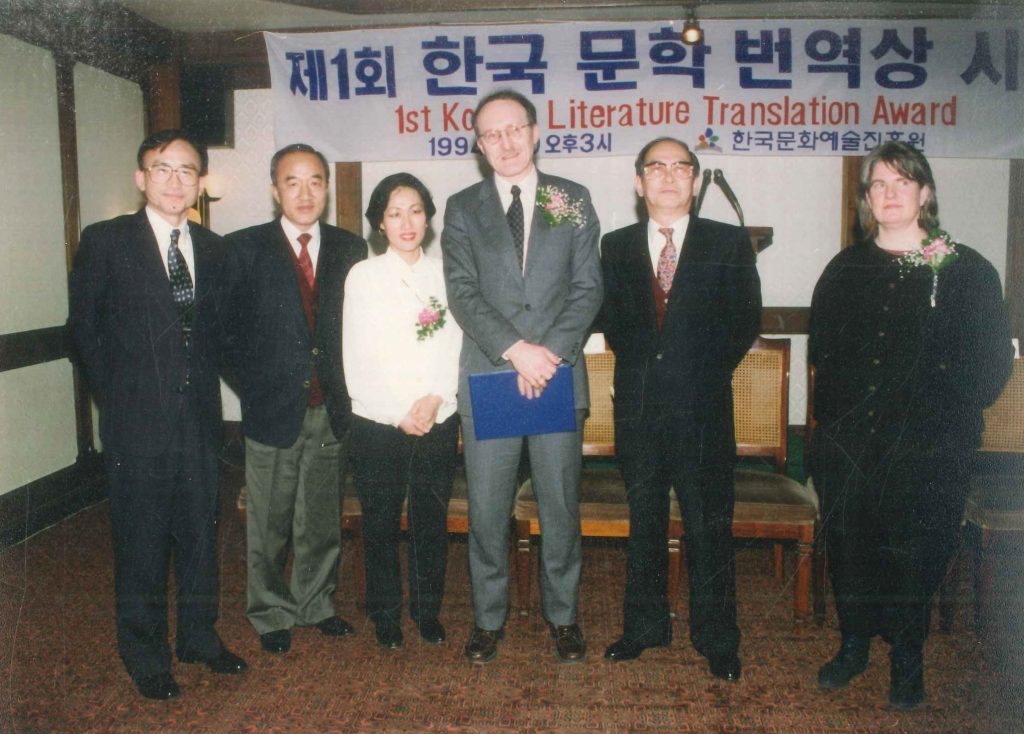

1993. Dr Bruce Fulton (with Ju-Chan Fulton and, far right, Barbara Wilson, publisher of Seal Press), award ceremony for Korean Literature Translation Prize (awarded by the Korean Culture and Arts Foundation, Seoul, for WORDS OF FAREWELL: STORIES BY KOREAN WOMEN WRITERS)
What change do you hope your work can make in the world?
I’ve always hoped, along with my good wife and translation partner, that our translations will bring increased attention, both abroad and in Korea, to the vibrant Korean literary tradition. I hope that through my teaching and our translation I can impress upon others the connections and commonalities, rather than the barriers and differences, shared by different peoples and cultures. More recently I take satisfaction from attempting in my teaching to facilitate the growth, both personal and professional, of my students, an increasing percentage of whom are ethnic Koreans who are charting new lives for themselves outside Korea.


